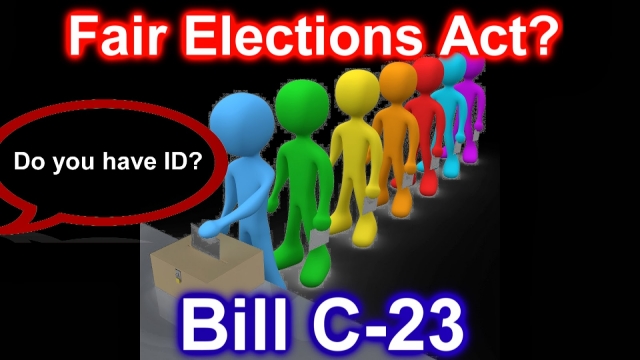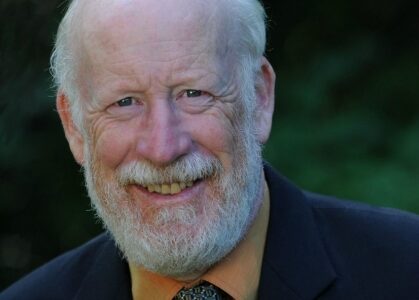Local politicians say Federal Fair Elections Act not fair at all
The electoral process in Canada is about to see some significant changes, as the Harper government’s Fair Elections Act has has made it to the last step toward becoming law, despite widespread opposition to the bill.
BC Southern Interior MP, Alex Atamanenko and Nelson-Creston MLA Michelle Mungall say the bill poses a threat to democracy and will make it more difficult for locals and people across the country to exercise their democratic right.
Despite vigourous efforts by the NDP to have parts of the bill abandoned and widespread opposition both in Canada and international, the Conservatives are forging onwards with the act. Bill C-23 passed second reading in the House of Commons last week by a vote of 149 to 131 – with all opposition parties and independent MPs voting against it.
Outlined in a comprehensive article about the bill put together by the Globe and Mail, if passed into the Fair Elections act would: eliminate vouching, disallowing voter ID cards as valid identification, change regulations surrounding campaign financing, increase limits for donations to political parties, limit the ability of Canada’s chief electoral officer to speak publicly, regulating robocalls, and more.
Atamanenko says this bill is essentially an effort by the Conservatives to rig the electoral system in their favour and they’re pushing it through Parliament despite all efforts by those with concerns about the bill.
“If you look at the fine lines of this bill, it comes out to the advantage of the Conservative Party (of Canada),” Atamanenko says.
“It disenfranchises many people who wouldn’t vote conservative. The Voter ID cards empower students, seniors and First Nations and they’ll no longer be accepted for identification at the polls.
“Students could be affected if they’re not able to out and vote (due to the elimination of vouching and voter ID cards and identification). And if Elections Canada isn’t allowed to promote elections, then they won’t be encouraging (students) to come out to the polls . . . (The bills) strips Elections Canada of its powers and engage Canadians in the electoral process.”
What’s more, Atamanenko says this is another example of how the Harper government forges ahead with its political agenda despite any opposition.
“The whole way this was done is once again ramming something through and limiting debate that’s very characteristic of this government,” he notes. “This is just another one of the steps this government has taken, especially as a majority of ramming stuff through and putting ahead their political agenda”
The NDP asked the Conservatives to go on the road and consult Canadians on the bill, but the government refused – so Atamanenko said his party decided to go out and do its own public consultation through a series of town hall meetings across the country.
“We haven’t seen the results yet, but we don’t think it will change the minds of this government.”
Marginalizing the already marginalized
Nelson-Creston MLA Michelle Mungall is no stranger to getting people out to the polling stations and says these new federal laws will disenfranchise the most marginalized in society from the electoral system.
Mungall, a former manager of the Nelson Food Cupboard, says requiring people to have only a picture ID to vote is essentially a systematic denial of voting rights for a certain segment of society.
Now that voter ID cards won’t be considered a valid proof of residence and vouching eliminated as an option, Mungall says people who are homeless or without a fixed address will have no way to exercise their democratic right.
“For many of us it’s OK,” she says.
“We have a drivers license, health care card or other ID we can use to show our proof or residence and ID. But the majority of people living in poverty . . . they struggle to get ID and retain ID and therefore this act means they’re no longer eligible to vote.
“They are Canadian citizens and they should have the right to vote under the basis of fundamental laws in this country.”
Mungall says when she worked for the Nelson Food Cupboard she often vouched for people who frequented the local food bank because she saw them regularly and knew they were members of the community.
“They could use the food cupboard as their place of residency, she notes. “It was the only place in our community where they could do that. It was the most stable thing in their lives. Now you can’t vouch for anyone and there’s no voter ID card.
“It’s this never ending cycle that further marginalizes people who are already marginalized.”
With the provincial government currently changing the Electoral Boundaries Commission Act after a minimal public consultation process, Mungall adds that similar changes to the laws governing provincial elections might not be far behind.
“We already know they’re attacking the boundaries commission, whether they’ll take it to the next level like the federal government has done is yet to me seen,” she says.
“We may see that type of legislation here in B.C. and if we do we need to fight against it.”
























